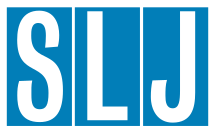
from School Library Journal, by Karen Jensen, TLT
“This past Sunday I had the honor of presenting with a panel of fabulous librarians about how libraries are NOT neutral spaces. Like most librarians, I spent a major part of my career proclaiming that we were. But over time, I have come to realize that we are, in fact, not. For example, if during the month of December you put up a Christmas tree or a Christmas display but don’t acknowledge that any other holidays exist, you are making a non-neutral statement and highlighting certain faiths and traditions over others. Did you choose to avoid putting up a Black Lives Matter display? That was not a neutral decision. This month is Pride, did you put up a Pride display? Whether you answer yes or no to this question, your answer is not a neutral decision. Every decision to do or not do something in our libraries is not a neutral decision, and it often reflects our own personal, cultural or institutional biases.
It has been a process for me to learn how to examine and break down my personal biases in considering everything I do in my library, from putting up a display to deciding when, where, and how to program. The work of being inclusive and advocating for my teen patrons – ALL of my teen patrons – is ongoing and never done. It takes some intentionality on my part and I am working on training my staff to have that same type of intentionality.
In fact, for me, displays and collections are a big part of how I try and be intentional and inclusive. I didn’t have a term for it until this weekend thanks to someone on Twitter, but I regularly perform diversity audits of my YA collection. I will sit down monthly with some type of topic or focus in mind and go through my collection to make sure I have a well represented number of titles and authors that represent that topic. For example, with Pride approaching, I spent the month of April going through every single letter in GLBTQAI+ to make sure that I had a good representation of titles for each letter in my collection. And when doing so I go through and make sure that they include as many POC, LatinX, Native American, Asian and more authors as possible. I don’t want to just be diverse in having GLBTQAI+ titles, I want to make sure that those titles are as diverse and representative as possible. Continue reading ALA Recap: Libraries are Not Neutral Spaces →





